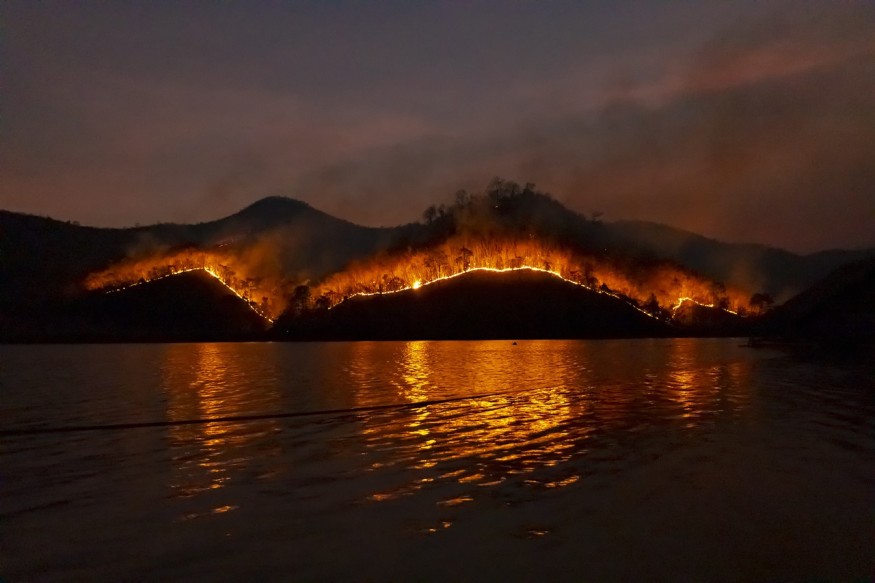Algeria wildfires have killed at least 34 people, forcing mass evacuations in multiple provinces in the northern part of the country.
This was according to local official reports as of Monday, July 24, wherein the raging fires have engulfed the region since July 17. The main cause of the flames remains unclear but it is likely linked to scorching temperatures experienced by the country this month.
Thousands of firefighters have been deployed in several affected Algerian provinces to combat the deadly Algerian fires. There were also reports of the blaze reaching coastal resorts, in addition to residential areas in the mainland.
There is a possibility the death toll will increase as search or rescue operations continue for potential survivors.
Algeria Wildfires

The Algeria wildfire death toll has increased to 34 people, which includes 10 soldiers who responded to the disaster. This is according to the country's interior ministry, which said wildfires swept across the regions of Algeria as a massive heat dome spreads across North Africa and Southern Europe, as cited by Reuters.
Local authorities said around 8,000 firefighters were battling the wildfires to keep the blaze under control. The ministry confirmed firefighting operations have continued in the regions of Bouira, Boumerdes, Bejaia, Jijel, Skikda, and Tizi Ouzou.
Meanwhile, the intense heat in Algeria was also recorded in its neighboring country of Tunisia, where wildfires also ravaged the border town of Melloula. Local witnesses in the area told Reuters that the wildfires started in mountainous areas, breached some homes and forced hundreds of families to evacuate.
Algeria Heatwave
The massive Algeria wildfire threat occurs amid a regional heatwave affecting North Africa and Southern Europe. Last year, a similar catastrophic extreme heat was reported in Europe and some parts of the Africa, including Algeria and Morocco. The previous scorching temperatures also led to heat-related deaths and illnesses, ranging from the hundreds to over a thousand.
During the summer season, fires frequently erupt through forest lands and fields in Algeria, according to Phys.org. However, the 2023 wildfires were aggravated by the heatwave, which caused some Mediterranean countries to break their highest temperature records.
In Algeria, the sweltering heat across the Mediterranean region expanded to dry and mountainous areas of North Africa. The dozens of deaths reported from the Algerian wildfires came as temperatures spiked to 50 degrees Celsius, the Financial Times reported.
Climate Emergency: Heatwaves
In recent years, extreme weather events and other natural disasters like wildfires and heat domes have been linked by scientists to climate change and global warming. The so-called 'climate emergency' involves the unprecedented increase of the average global temperatures, which potentially increases the frequency and intensity of these events.
According to the Center for Climate and Energy Solutions, research data shows that alterations in climate produce warmer and drier conditions. In addition, climate change also increases drought and leads to a more prolonged fire season. These elements all boost wildfire risk, according to the data.
© 2025 NatureWorldNews.com All rights reserved. Do not reproduce without permission.





